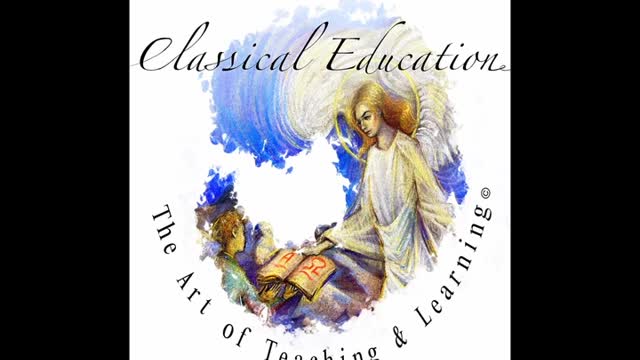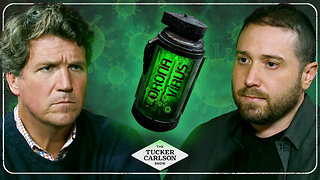Premium Only Content

The Art of Teaching Science & Pursuing Truth with Dr. Steve Mittwede
About our Guest: Steve Mittwede, PhD, EdS
Dr. Mittwede is privileged to be a teacher of Earth Science at Randolph School in Huntsville (Rocket City!), Alabama, after having taught at two great classical schools in Texas for the past seven years. Heartily committed to lifelong learning, his most recent degree was an EdS in Educational Leadership from Columbia International University (CIU), following degrees in geology from The College of William and Mary (BS) and the University of South Carolina (MS and PhD), the last two while concurrently working as a full-time mineral resources geologist for the South Carolina Geological Survey. During that time in South Carolina, he married Dana, and they were blessed with four sons in close succession – all now grown, married, and raising their own broods (13 grandchildren and counting!). Steve also has an MA in intercultural studies from CIU and an MTh in theology from Union School of Theology/University of South Wales (UK). With his family, Steve lived for 23 years in Ankara, Turkey where he worked as an educator, academic researcher, consulting geologist, and scientific/technical editor. His main research “squeeze” over the last few years has been the great Peripatetic, Theophrastus, a paragon of scholarly virtues that are especially applicable in science education.
Show Notes
Adrienne interviews master teacher, Dr. Steve Mittwede on the art of teaching science. As an expert in the classroom, Steve brings practical ideas for teachers to consider for good, truth-driven instruction. He discusses in detail how to help students use good language (grammar mode of the trivium) to help them in habits of attending and defining their observations. We also discuss the truth pursuits around the unity of knowledge and how important this is to the foundation of integerated instruction. If truth is a foundation to classical education, then integrating all the "subjects" together ought to matter! His Three Realms of Knowing is a construct he developed about 20 years ago showing students that everything fits together.
Some topics in this episode include:
What is a good definition of science?
How should science text books be used?
What are best practices in the art of teaching science?
How to engender conversations for good scientic hypothese
Why nature study is critical for good science practices with students
How scientific thinking can help us integrate and make connections to all truth and reality.
The Law of Noncontradiction
Horizontal integration of science with poetry and Socratic inquiry
Books & Resources In This Episode
Aristotle's Metaphysics
"Learning Scholarly Virtues from Theaphrastus" by Dr. Mittwede, published by SCL
Opus Majus by Roger Bacon
Poems for Science class
Hymn before Sun-rise, in the Vale of Chamouni By Samuel Taylor Coleridge
I Am Like a Slip of Comet by Gerard Manley Hopkins
Quotes that Dr. Mittwede uses in his science classes
"Truth, like gold, is not be obtained by its growth, but by washing away from it all that is not gold."- Leo Tolstoy
"I would rather be ashes than dust! I would rather that my spark should burn out in a brilliant blaze than it should be stifled by dry-rot. I would rather be a superb meteor, every atom of me in magnificent glow, than a sleepy and permanent planet. The proper function of man is to live, not to exist. I shall not waste my days in trying to prolong them. I shall use my time."- Jack London
Please Support us on Patreon
_________________________________________________________
Credits:
Sound Engineer: Andrew Helsel
Logo Art: Anastasiya CF
Music: Vivaldi's Concerto for 2 Violins in B flat major, RV529 : Lana Trotovsek, violin Sreten Krstic, violin with Chamber Orchestra of Slovenian Philharmonic
© 2022 Beautiful Teaching. All Rights Reserved
-
 59:11
59:11
Classical Education Podcast
1 year agoNarration in the Classroom: A Panel Discussion
199 -
 LIVE
LIVE
Dr Disrespect
2 hours ago🔴LIVE - DR DISRESPECT - MARVEL RIVALS - I AM GROOT
5,404 watching -
 LIVE
LIVE
The Quartering
1 hour agoShutdown Watch, Biden Dementia Bombshell, Madison Shooter Had An Accomplice & Much More!
2,944 watching -
 LIVE
LIVE
Right Side Broadcasting Network
7 days agoLIVE: TPUSA's America Fest Conference: Day Two - 12/20/24
3,401 watching -
 LIVE
LIVE
Tucker Carlson
3 hours agoJenner Furst: Secret Chinese Biotech Programs, and the Documentary That Could Put Dr. Fauci in Jail
8,371 watching -
 9:39
9:39
Film Threat
3 hours agoNOSFERATU | Film Threat Reviews
153 -
 14:33
14:33
IsaacButterfield
9 hours ago $0.24 earnedINSANE WOKE MEN OF TIKTOK!
8656 -
 LIVE
LIVE
The Charlie Kirk Show
1 hour agoAmericaFest: Day 2 | Beck, McKoon, Steele, Nagao, Galaszewski, Bowyer, Brown, Amanchukwu | 12.20.24
6,654 watching -
 54:15
54:15
The Dan Bongino Show
4 hours agoSaving The U.S. Military w/ SEAL Andy Stumpf (Ep. 2392) - 12/20/2024
465K507 -
 LIVE
LIVE
The Dana Show with Dana Loesch
1 hour agoGOVERNMENT SPENDING BILL FAILS | The Dana Show LIVE On Rumble!
704 watching